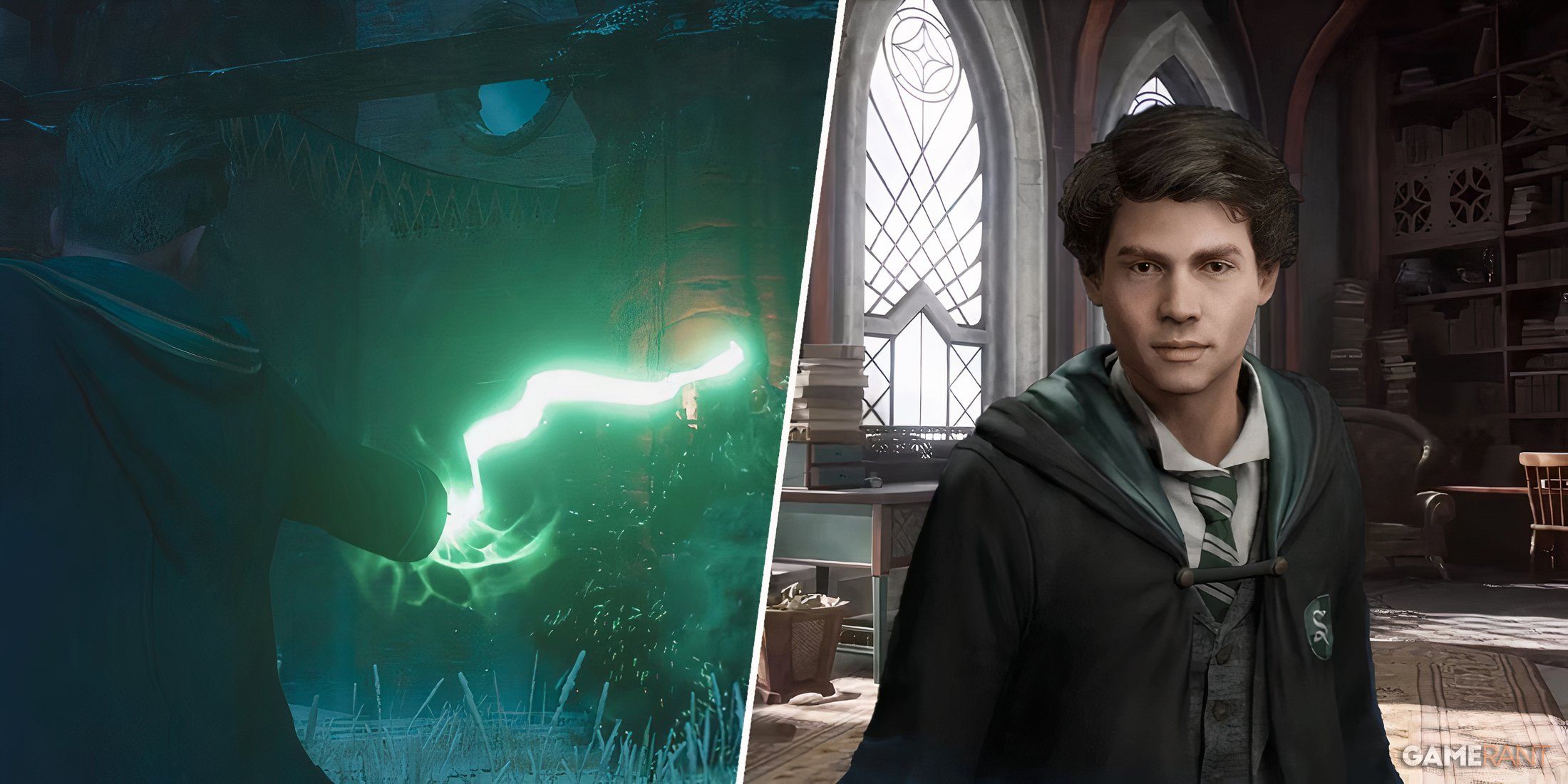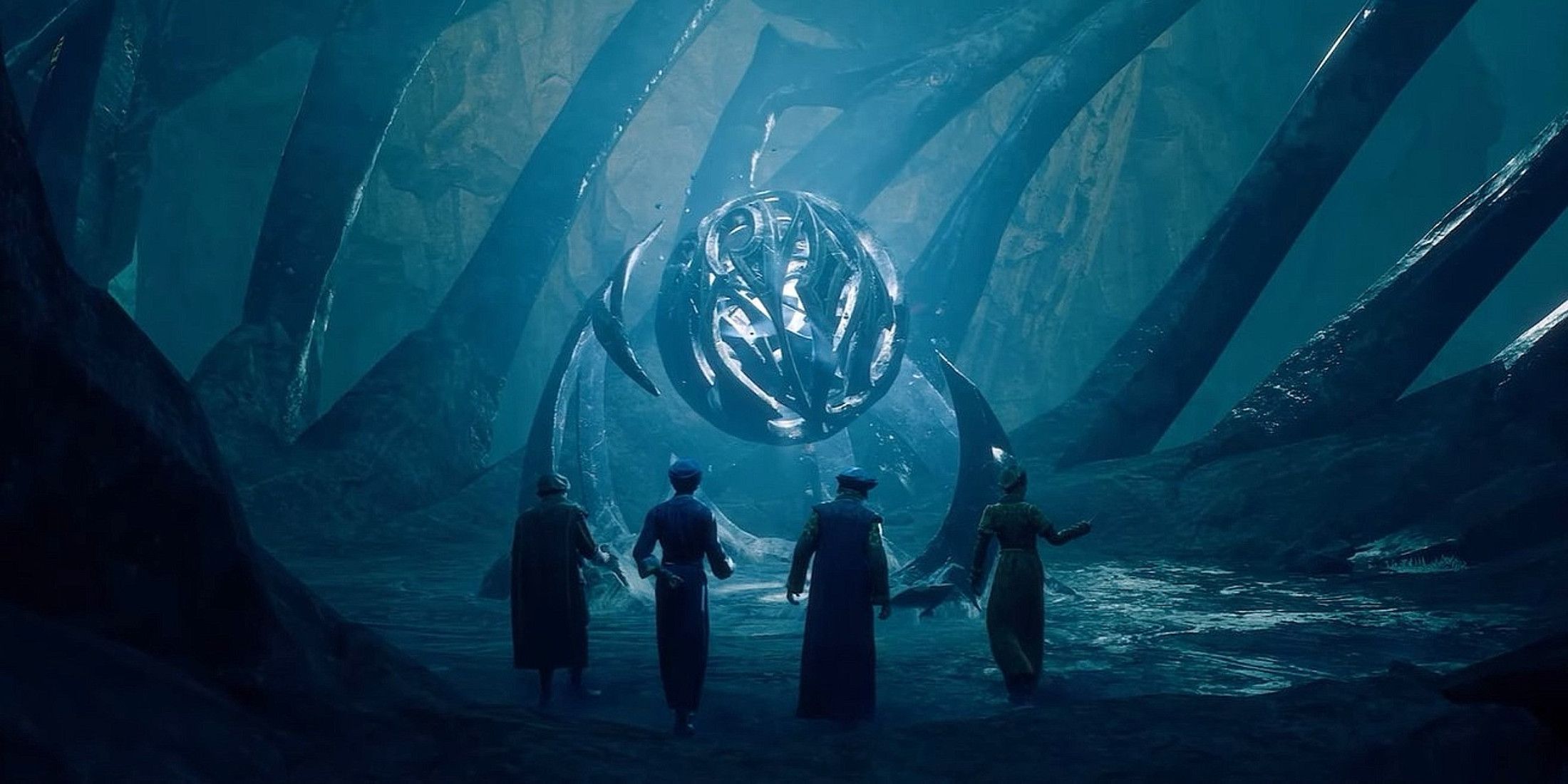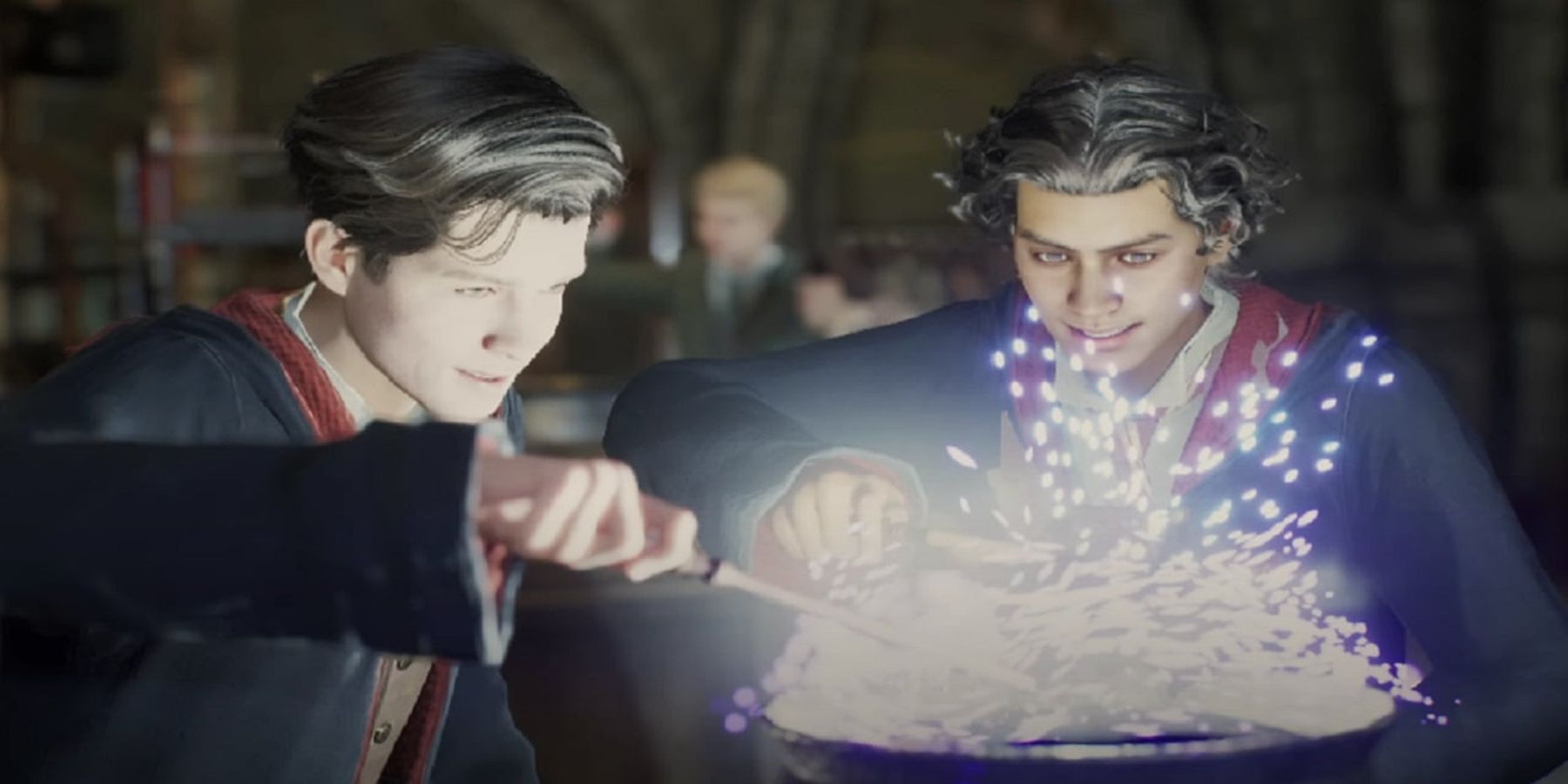Hogwarts Legacy was only recently released, but it has already become a near-instant bestseller. Not only was the game ultra famous before launch, but it is now the top game on Steam, the Microsoft Store, and the PlayStation Store. While Hogwarts Legacy has been controversial since it was first announced, one point of contention has been the lack of romance in the game. This is a surprising move for an RPG that has to contend with Skyrim and Cyberpunk 2077, both of which have intimate relationships and romance as a foundational part of the gameplay. Ultimately, although Hogwarts Legacy touts player freedom as most important, the lack of romance says otherwise.
When making a case for leaving romance out of the RPG, Hogwarts Legacy developer Avalanche Studios alleged that more intimate relationships between the player character and NPCs would prevent the player from being able to "make the character they wanted and be who they wanted." Unfortunately, the social and relational disconnect between characters in Hogwarts Legacy demonstrates the opposite. Avalanche Studios missed that modern in-game romance is more than a cutscene of physical intimacy. Complex relationships are crucial to player-forward storytelling, and Hogwarts Legacy is proof of this.
Hogwarts Legacy's Core Reasons For No Romance Are Undercut By Other RPGs and Harry Potter
Avalanche Studios cited multiple reasons for leaving out romance, all circling back to the idea that player freedom is stilted when introducing the mechanic. The studio might have been insinuating that since the concept of romance differs for each person and player, there would be no way to convey that complexity. What is unfortunate, though, is that other recently-released RPGs have been able to do this. For instance, I Was A Teenage Exocolonist is a brilliant example of how impactful in-game romance can be. The game gives NPCs agency and romantic identities, and they are active participants in their romantic and Platonic relationships.
Another core reason that Avalanche Studios mentioned is that romance mechanics might be tricky for a game like Hogwarts Legacy, which features teenage characters but can be played by anyone. Not only is this odd, given that the Harry Potter franchise includes teen romance, but it also insinuates that romance cannot exist without physical intimacy. Games like Life Is Strange, Monster Prom, and The Last of Us combine player stakes with social complexity, providing examples of how Hogwarts Legacy could have done more. It seems as though Hogwarts Legacy instead went to the extreme, including companions but cutting out any sense of depth regarding relationships.
Instead of Shying Away From The Mechanic Altogether, Hogwarts Legacy Could Have Innovated On Romance
What is particularly interesting about Hogwarts Legacy's lack of romance or social depth is that the game seems to hint at the possibilities for more. Whether it's Natsai escorting the player to Hogsmeade or sneaking into the forbidden section of the library with Sebastian, fans can see where complex relationships should have been formed. It would make sense for a Wizard's relationship with an NPC to become more nuanced as they interact. For instance, a Wizard could ask about a character's views on romance and relationships. As with other RPGs, an NPC and the player could have the choice to engage in a romantic or Platonic relationship, but the player could still deepen said relationship either way.
Hogwarts Legacy's refusal to add mechanics around social depth and romance is unfortunate because it gives the player little reason to interact with any NPCs at Hogwarts. Instead, the game is a school simulator devoid of the social complexity that made a school like Hogwarts so interesting in the Harry Potter books. Given the game's controversial connection to J.K. Rowling and her transphobic views, Hogwarts Legacy could have used more complex social mechanics to help distance the game from the author. Adding Hogwarts students with diverse ideas of romantic and Platonic intimacy - including Asexuality, Aromantics, Demisexuality, and other identities - alongside gender-neutral character creation would have been groundbreaking.
Hogwarts Legacy is available to play now on PC, PS5, and Xbox Series X/S with PS4 and Xbox One versions coming April 4 and a Nintendo Switch port dropping July 25.





.jpg)
